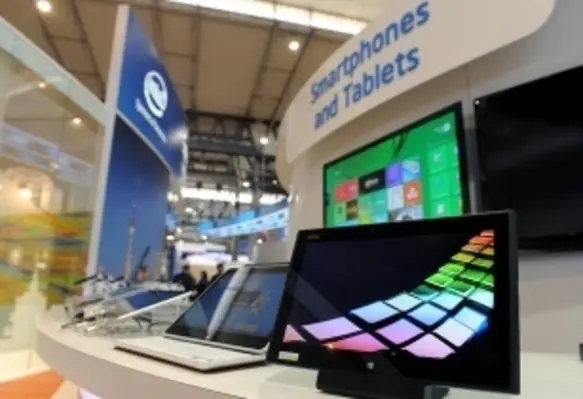Gartner, the global IT research and advisory company, recently hosted a conference in Cape Town, South Africa, during which experts discussed the evolution of mobile technology through to 2017
Africa alone has more than 450 million mobile phone users, which makes it among the largest and fastest growing mobile market in the world. Moving forward it is expected that Apple will retain the lead globally, which a particular focus in mature markets, while Android will continue to lead in emerging markets.
Gartner vice president and analyst Nick Jones told African Review, "The first thing to note in mobile technology is that Apple and Samsung will remain at the top, while BlackBerry will remain a low-level competitor in the market, but it is unlikely that it will make it into the top three competitors in the market. The new BB10 came a little too late."
Smartphones will dominate
The distinction between smartphones and feature phones will blur as cheaper smartphones get introduced to emerging market.
"It is expected that 78 per cent of total global handset shipment will be smartphones by 2016, while interest in Windows mobile phones will continue to grow. We are not going to be tied down to the old world of square screens. Flexible OLED screens will slowly emerge," Jones comments.
Mobile apps on the rise
Mobile apps technology will become more sophisticated and more complex going forward.
"The stakes are rising and it’s no longer enough for businesses to produce apps if they are not up to a standard that can add value to its customers," Jones remarked.
"New mobile apps are making expensive health care technology accessible to a lot of people who would normally have no access. For example the new health apps allow users to check their blood pressure and check eye sight."
Faster Internet
Even though it will be some time before complete coverage is the case, Long Term Evolution (LTE) or 4G networks will continue to allow users to download data from their mobile phones at a much faster pace.
Another trend that will emerge is the introduction of Internet in household appliances such as refrigerators, coffee makers and television.
"With the rumours of Apple watches to be launched soon, consumers will also be able to wear technology as well. Anything is possible," Jones commented.
Security threats on the rise
Last year a hacker group known as Ghost Shell posted 1.6 million login names, passwords and email addresses after hacking the US Federal Bureau of Investigation (FBI) and other security agencies databases. In 2013 online security will remain a concern as hacktivism, advanced persistent threats (APTs) and potential risks caused by Bring Your Own Device (BYOD) trend will increase security threats.
"Companies can no longer use the old methods of storing information. Not only is it not secure, but makes sharing information between employees difficult," said Jones.
New and sophisticated ways of storing data securely will emerge. The BYOD trend will give employers something to think about as more and more employees are bringing their own laptops and tablets to work.
"Companies need to start thinking about putting policies in place to deal with BYOD because it is here to stay," noted Jones. "The main concern is in how companies control personal and work use in company-owned devices and personal devices and still keep employees happy."
Tablets replacing desktops
As mobility matures traditional desktop computers will be replaced by ultra-thin notebooks and tablets.
“The tablet market will continue to grow, but the Apple iPad will have to compete with Android devices like the Samsung Galaxy Tab. There are interesting times ahead as new companies from China are entering the market,” Jones concluded.






















